Emily Lakdawalla • May 28, 2015
Four mission assembly progress reports: ExoMars TGO, InSight, OSIRIS-REx, and BepiColombo
2015 has seen few deep-spacecraft launches, but 2016 is shaping up to be a banner year with three launches, followed quickly by a fourth in early 2017. You can see the list in Olaf Frohn's always-excellent "what's up in the solar system" diagram. ExoMars Trace Gas Orbiter and its passenger, the Schiaparelli landing demonstrator, is working toward a January launch: InSight will go in March; OSIRIS-REx in September; and BepiColombo's triple spacecraft in January. All told, there are eight or nine spacecraft launching with these four missions. (I wasn't sure whether to count OSIRIS-REx's sample return capsule as a distinct spacecraft, thus my uncertainty about eight or nine.)
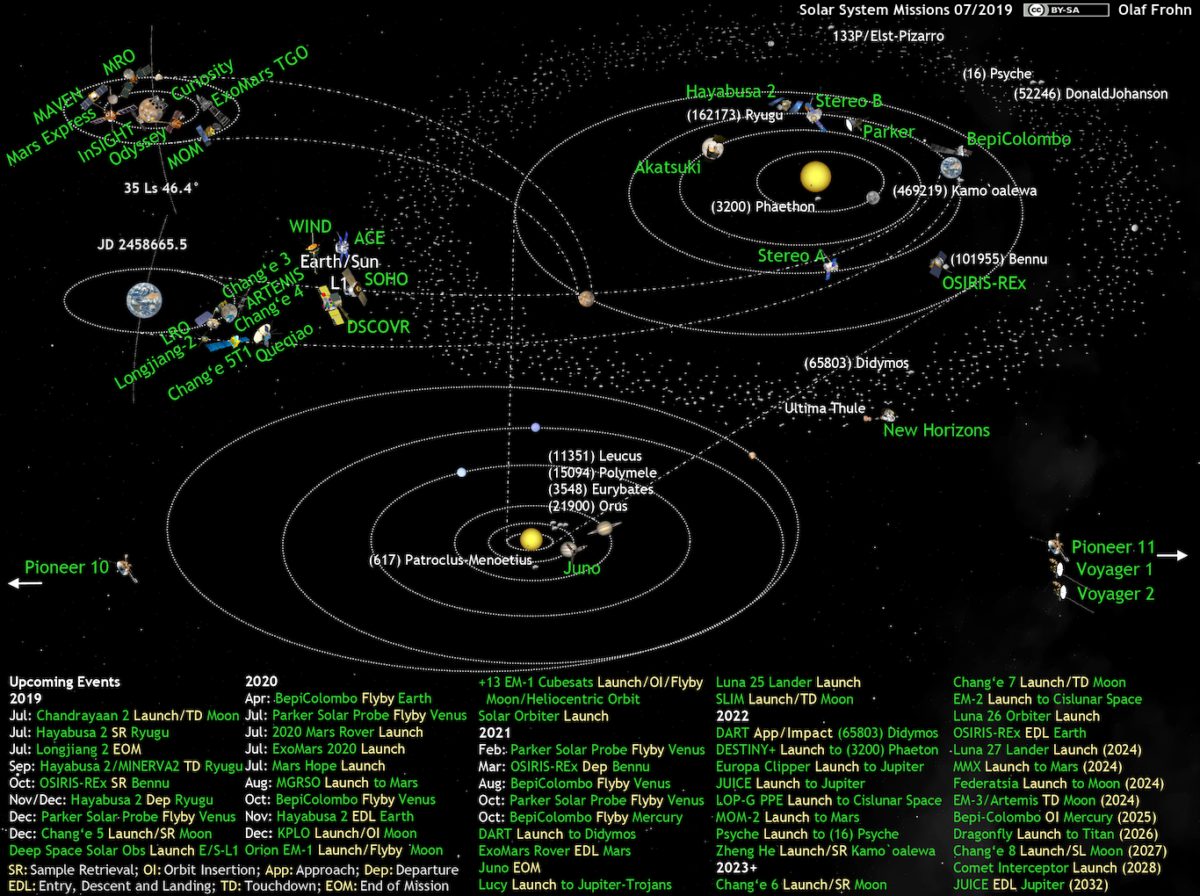
It's always cool to see spacecraft baby pictures -- photos of the machines undergoing assembly. They are among the most advanced technology that humans produce; and yet each one is hand-crafted and unique. This is small-batch artisan high technology. We've been treated to many such baby pictures in the last few weeks.
Here are ExoMars Trace Gas Orbiter (TGO) and Schiaparelli, meeting each other for the first time. The space engineering community uses the term "mating" for this event but since no offspring will be produced, I don't think it's entirely appropriate! How about "attachment" or "connection" or "union" or "joining?" You can see more photos of their union at ESA's website, and there's a video here. A more recent photo shows ExoMars TGO and Schiaparelli undergoing vibration testing. Meanwhile, they've prepared the clean room that will be used to assemble the ExoMars rover; Jonathan Amos has a story on that at the BBC. Of course, there are worries about what the recent Proton crash means for ExoMars' launch; Paul Suthers has a story on that.
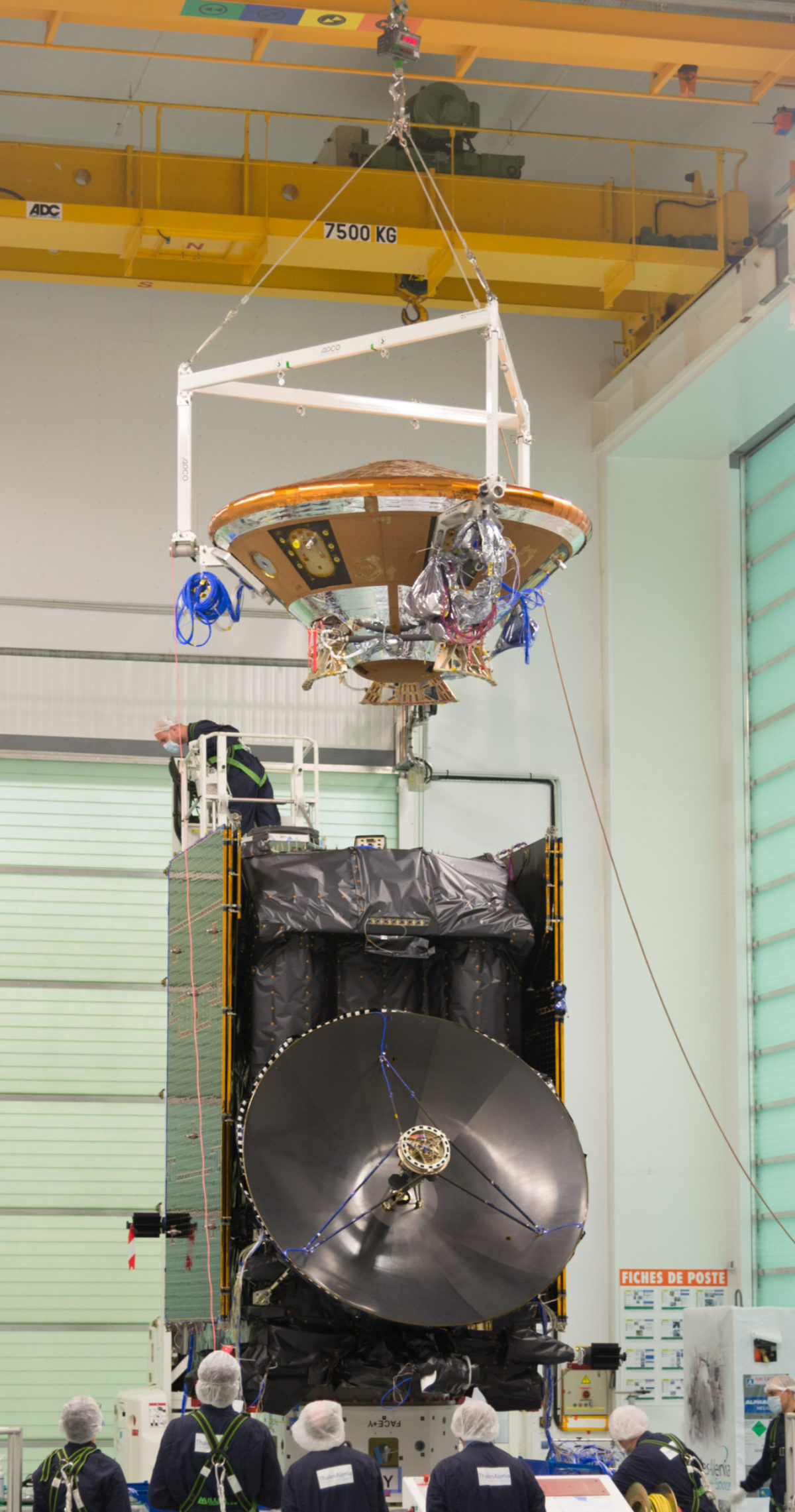
Next to launch is InSight. Today, Lockheed Martin announced completion of InSight's assembly, and JPL announced the beginning of environmental testing. This is a pretty dramatic milestone: congratulations to the whole InSight team! There is still a great deal of testing to be done before the spacecraft gets shipped to Vandenberg Air Force Base for its launch. But it's a beautiful thing to see a spacecraft fully assembled.
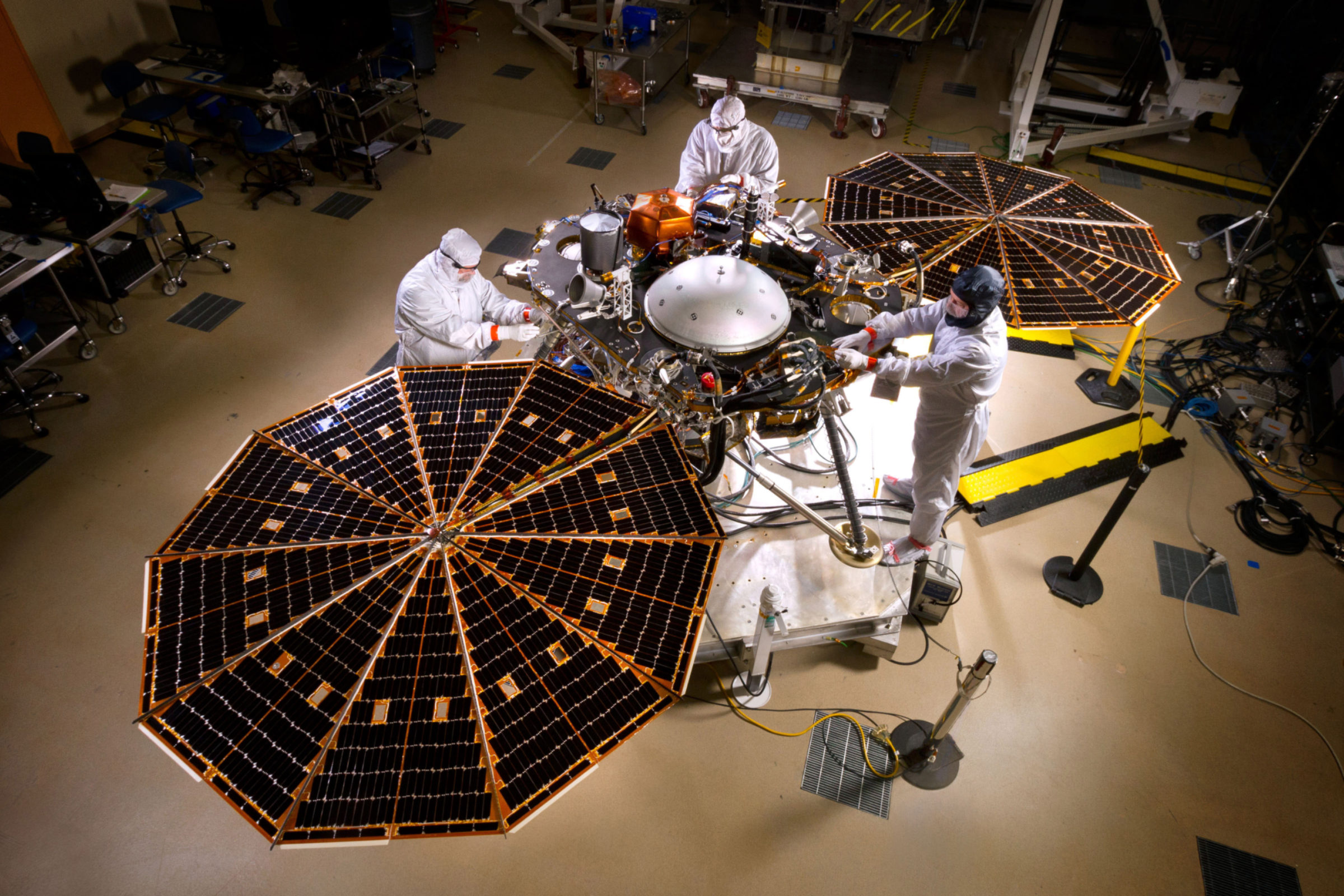
There are lots more photos at the JPL story. I especially like the one of engineers building InSight's diminutive heat shield; it looks like they're building a sand castle on top of a beehive. (Quick, somebody make that scenario into an app.) Also, I enjoy this photo of InSight's disk-gap-band parachute being tested in the same facility that tested Curiosity's comparatively gigantic parachute of similar design.
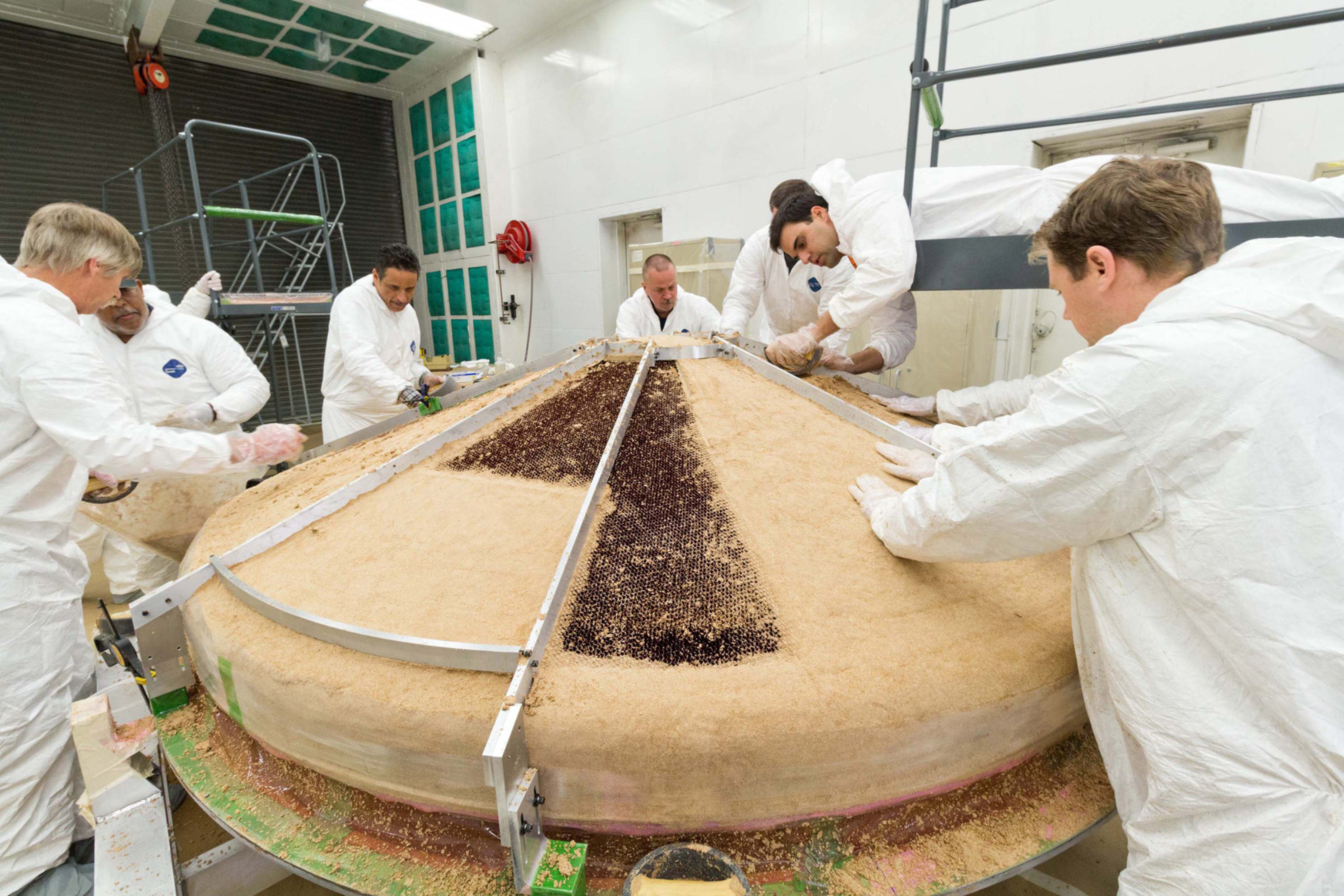
Next up is OSIRIS-REx. We've been watching that mission's development on this site through Dante Lauretta's guest blogs, but I don't want it to be left out of this photo roundup, so here's one of the images from his most recent post, which is as much about the people who build these spacecraft as it is about the spacecraft itself:
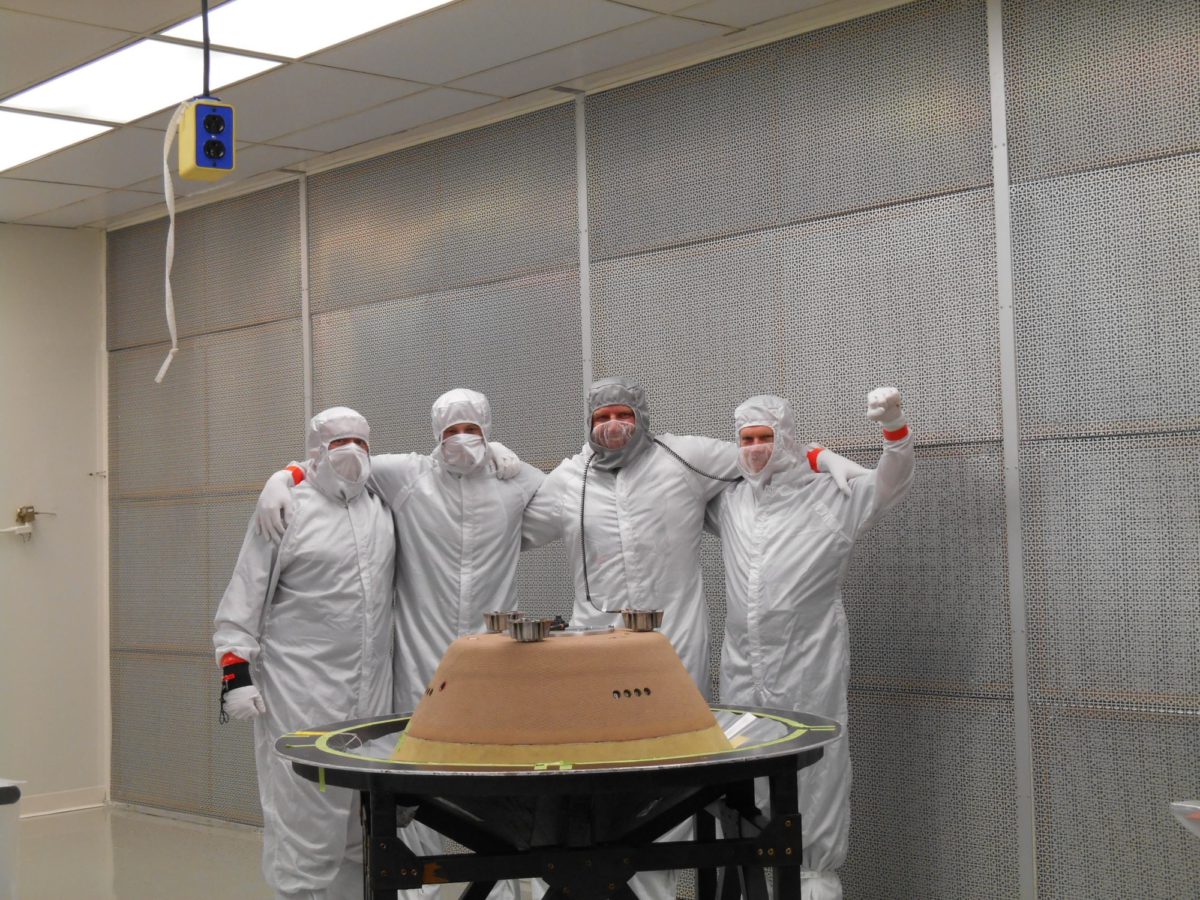
Finally, there's BepiColombo, which was originally planned to launch in 2016 but which is now looking at a January 2017 launch. Despite its dual name, BepiColombo actually consists of three spacecraft: ESA's Mercury Planetary Orbiter, JAXA's Mercury Magnetospheric Orbiter, and an ESA-built Mercury Transfer Module, charged with delivering the science craft to their target. The big announcement yesterday was that the Mercury Magnetospheric Orbiter has been delivered to the assembly facility; it's shown here with the "protoflight model" of the Mercury Transfer Module. It's very shiny! Mercury spacecraft have to be mirror-covered to minimize the heat they absorb from the nearby Sun.
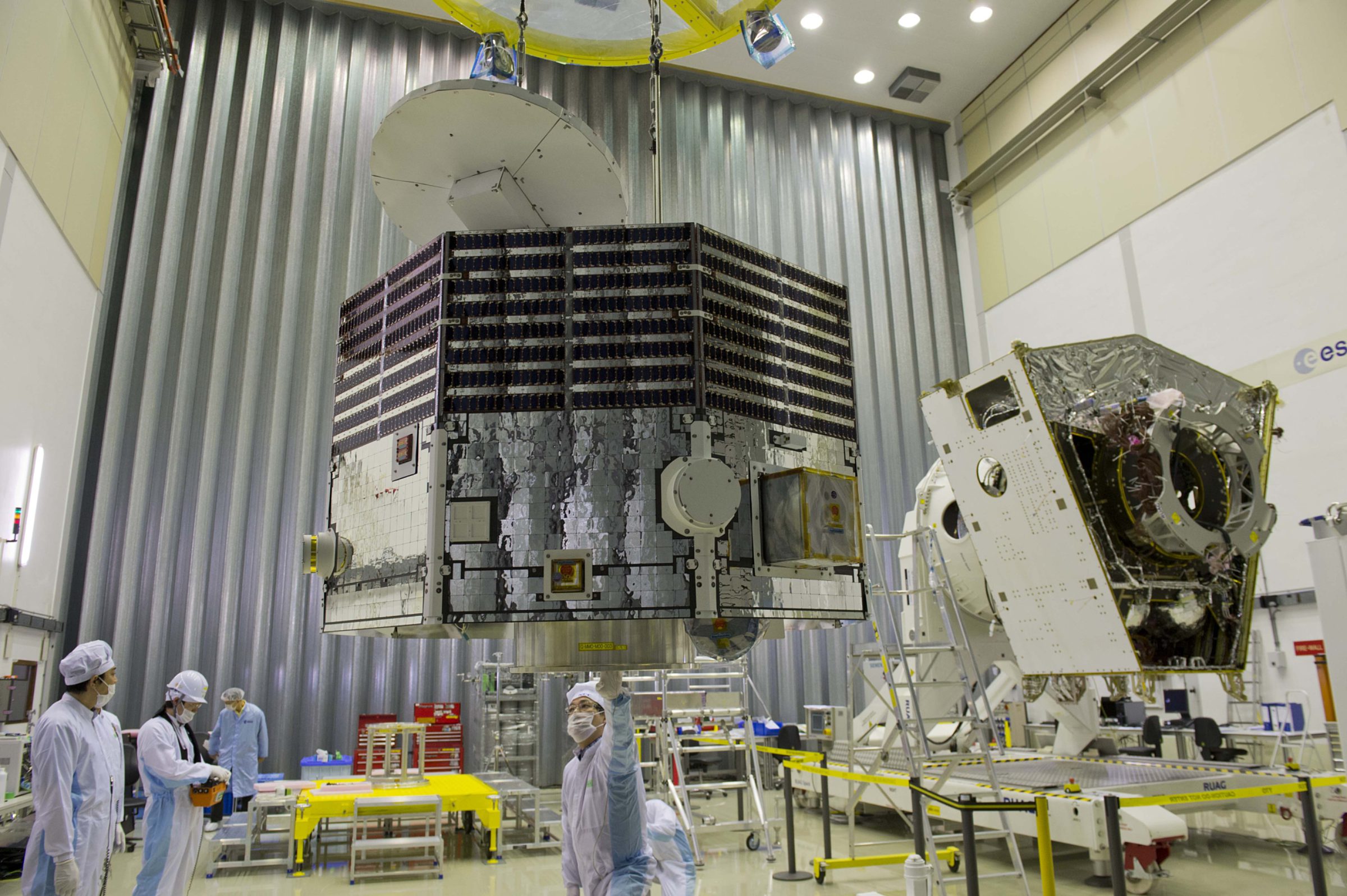
It's very exciting to see BepiColombo come together, and not just because we desperately need new spacecraft sent toward the inner solar system now that MESSENGER is no more. I'm thrilled to see the success of this partnership between JAXA and ESA. ESA has the success with deep-space missions that has been somewhat elusive to JAXA, while JAXA has unmatched creativity in spacecraft design. We've seen what a success interagency cooperation can be, with Cassini-Huygens; but such cooperation has been rocky recently, with NASA unceremoniously withdrawing from partnerships with ESA on ExoMars and the originally planned joint Jupiter mission. I have high hopes for the cooperation between ESA and JAXA on BepiColombo -- I hope that the mission will demonstrate that such cooperation multiplies the value of each agency's individual contribution to the mission.
A postscript: I had an interesting diversion yesterday, trying to understand what the words "protoflight model" meant -- ESA uses the phrase to name the Mercury Transfer Module. It's clearly a portmanteau of "prototype" and "flight", and it turns out that that's exactly what the word means. To ESA "protoflight" models can be both one-of-a-kind high-fidelity prototypes and also the actual flight article that will be launched into space. It's a word that's not used on NASA missions, as far as I understand things. NASA missions have "flight" hardware, which goes to space, and "engineering models," which remain on Earth. Most NASA engineering models that I have seen are essentially flight-qualified spacecraft, but the engineering models are the spacecraft that get put through the more severe environmental testing. To make things more confusing, ESA also uses the phrase "engineering model," but to ESA, an engineering model is not a flight article; it's a thing that you use on Earth for testing. Which is what NASA calls a "testbed." I thought space-related acronyms were confusing; but different usage of the same phrases within different space communities is even more confusing!
Let’s Go Beyond The Horizon
Every success in space exploration is the result of the community of space enthusiasts, like you, who believe it is important. You can help usher in the next great era of space exploration with your gift today.
Donate Today

 Explore Worlds
Explore Worlds Find Life
Find Life Defend Earth
Defend Earth

